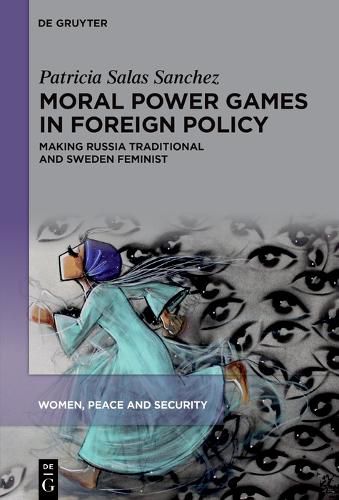Readings Newsletter
Become a Readings Member to make your shopping experience even easier.
Sign in or sign up for free!
You’re not far away from qualifying for FREE standard shipping within Australia
You’ve qualified for FREE standard shipping within Australia
The cart is loading…






Moral Power Games in Foreign Policy explains how gendered foreign policy practices reproduce national identity and enable enhanced moral power in international relations. Using the cases of Russia and Sweden, it demonstrates how moral power games take place in the international realm as contending national values and gendered foreign policy practices collide.
Between 2012 and 2022, Russia and Sweden reflected the increasingly polarised international landscape wherein foreign policies emphasising the protection of traditional values and explicitly feminist foreign policies emerged. Russia has been pursuing a revisionist foreign policy informed by traditional values to advance national interests and outcomes. At the same time, Sweden became a leading state practising and advocating a feminist foreign policy. Moral Power Games in Foreign Policy analyses these relational international dynamics.
Using Ukraine as a case study, the book interrogates how the reproduction of Russian and Swedish national identities through gendered foreign policy practices is implicated in moral power games.
$9.00 standard shipping within Australia
FREE standard shipping within Australia for orders over $100.00
Express & International shipping calculated at checkout
Moral Power Games in Foreign Policy explains how gendered foreign policy practices reproduce national identity and enable enhanced moral power in international relations. Using the cases of Russia and Sweden, it demonstrates how moral power games take place in the international realm as contending national values and gendered foreign policy practices collide.
Between 2012 and 2022, Russia and Sweden reflected the increasingly polarised international landscape wherein foreign policies emphasising the protection of traditional values and explicitly feminist foreign policies emerged. Russia has been pursuing a revisionist foreign policy informed by traditional values to advance national interests and outcomes. At the same time, Sweden became a leading state practising and advocating a feminist foreign policy. Moral Power Games in Foreign Policy analyses these relational international dynamics.
Using Ukraine as a case study, the book interrogates how the reproduction of Russian and Swedish national identities through gendered foreign policy practices is implicated in moral power games.